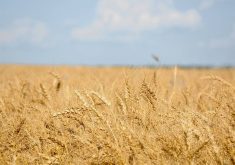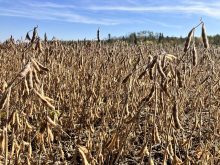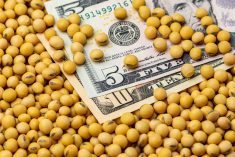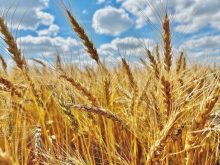Chicago | Reuters—Chicago Board of Trade soybean and corn futures plunged on Friday but were set for weekly gains, as weather forecasts indicated positive news for crops in the central United States.
Wheat dipped again as strong U.S. spring wheat projections and cheap prices offered by Black Sea exporters outweighed the impact of rain delaying and damaging west EU harvests.
“We’re seeing the bull conviction that we had here through the early part of the week just not able to carry through and extend the recovery rally in front of the weekend,” said Terry Linn of Linn & Associates.
Read Also

ICE Canada Weekly: U.S. biodiesel mandate will be a boon for canola
Canola is poised for more gains as the trade awaits the Trump administration’s decision on the latest biodiesel mandate, said Jamie Wilton, broker with RJ O’Brien in Winnipeg.
Chicago Board of Trade most-active soybeans Sv1 fell 25-1/2 cents to $10.54 per bushel at 1211 CDT (1511 GMT).
Corn Cv1 was down 8-3/4 cents to $4.12 a bushel while wheat Wv1 fell 10-1/2 cents to $5.27-1/4 a bushel.
Hot, dry weather forecasts for the U.S. Midwest have lost the consistency that supported corn and soybeans earlier this week, according to analysts.
On Thursday, the Commodity Weather Group said up to 20 per cent of the U.S. corn crop is likely to be stressed in the next two weeks, but more rain is now forecast in U.S. crop belts next week – welcome news for corn and soybeans.
“We are lacking a definable weather story here at the moment,” said Linn.
“At the same time, we’ve seen some cash movement that has helped to tap the brakes on the rally,” he said.
He added that a weaker energy trade was also a negative influence.
In wheat, Linn said favorable U.S. harvest prospects including record yield projections coming from the annual North Dakota spring wheat tour, pressured the market.
“This is the first year in several that we haven’t had any material drought and it’s showing in these yield expectations, he said.
—Additional reporting for Reuters by Michael Hogan in Hamburg and Peter Hobson in Canberra















